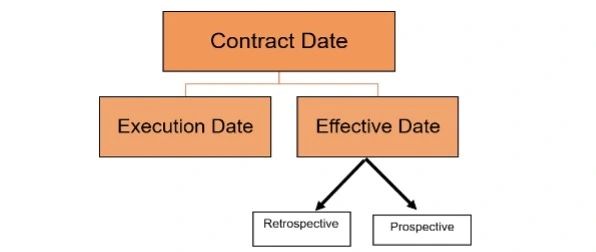Tips for contract drafting
Very often, business is conducted without a contract in place, or a contract may be entered into with entrepreneurial optimism despite certain basic pre-conditions not being fulfilled. Simply put, irrespective of when a contract is signed between parties, Effective Date determines the date on which the contract becomes binding and enforceable.
Primarily, Execution Date is the date on which the contract is signed and executed between the parties, whereas an Effective Date means the date from which the rights and obligations of parties come into effect. This blog post seeks to set out broad principles for the two concepts and their interconnection in day-to-day business transactions and offer a paradigm to view their importance to drafting .

Effective Date
An Effective Date in a contract signifies the date which bring the operational clauses concerning the performance of contract, rights, and liabilities of the parties into effect. The Effective Date can be either prospective or retrospective, to the Execution Date. If the Effective Date is prospective, the rights and obligations of the parties are effective from a later date, and includes certain action towards the transaction prior to the Effective Date. For instance, a shareholders agreement comes into effect upon conclusion of events in a share subscription agreement or share purchase agreement i.e on a future date post execution which may be indeterminate today. Conversely, in employment contracts, the contract may come into effect on future determinate date.
However, in few cases, the Effective Date is retrospective, where the rights and obligations of parties are effective from a previous date. For instance, at times in a service agreement, where the services are already being rendered, the contract is made effective from a retrospective Effective Date. Similarly, in an amendment agreement the effective date may be retrospective depending on the date on which the principal agreement has expired is sought to be amended.
Execution Date
The Execution Date is the date when the parties to a contract execute the contract itself i.e., the date on which the parties put down their signature on the contact. The Execution Date may not be same as the Effective Date, therefore, in absence of an Effective Date, the terms of the contract become operational from the Execution Date. Further, in the event there is no Execution Date on the contract, the date that the last party signed the contract will be presumed to be the Execution Date.
In Sum
While drafting, it is recommended to have regard to the following:
- Background details of the parties.
- Whether the subject matter of the contract is in the process of execution.
- Whether any pre-conditions are prescribed.
- Whether the agreement is to come into effect from a later date.
- What happens in the interim i.e. between the Execution Date and Effective Date?
If the Effective Date is retrospective, any savings of rights, specific breaches, defaults, or waivers are to be recorded. If the Effective Date is prospective, the conditionalities that need to be observed for the agreement to come into effect must be stated.
The content of this article is intended to provide a general guide to the subject matter. Specialist advice should be sought about your specific circumstances.



